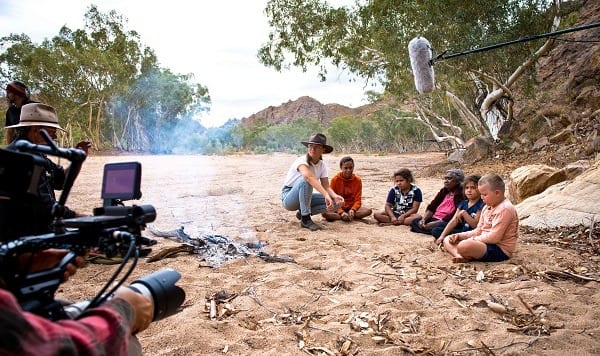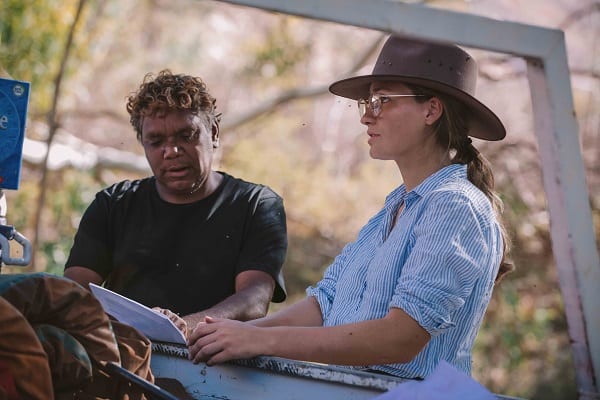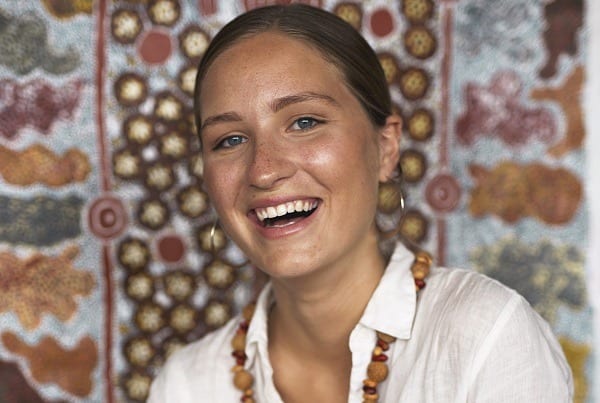The international award is the highest accolade a young person can achieve for social action or humanitarian efforts.
Glynn-McDonald, a Kaytetye woman, is the founder and CEO of Common Ground, a not-for-profit online portal sharing First Nations cultures, histories and lived experiences to a wide audience across Australia.
According to the 2018 Reconciliation Barometer Survey, 79% of Australians believe that First Nations cultures are important to our national identity, but only 38% believe they have a high level of knowledge of those cultures. Since launching a year ago, Common Ground has reached 120,000 people.
The organisation also records and preserves First Nations cultures across Australia, to save what is at risk of being lost.

Glynn-McDonald spoke to Women’s Agenda to share more on Common Ground and what’s next for her in light of her recent international recognition.
Where did you get the idea for Common Ground?
Common Ground was born out of the idea that we needed to create the space for all Australians to learn about First Nations cultures, histories and lived experiences. First Nations knowledge systems are 80,000 years in the making, and this knowledge is currently undervalued by Australian society. We launched Common Ground a year ago to ensure that the next generation of Australians value and celebrate First Nations people and cultures. Since launching, we have helped over 120,000 people learn more about Aboriginal and Torres Strait Islander people, our cultures and our histories.
Your grandmother Freda Glynn is an amazing woman. How has having strong women around you contributed to your life and your career?
I have been guided by incredible women throughout my life. My Grandmother is the matriarch of our family. She is an incredible media pioneer and powerful voice for Aboriginal people in Central Australia. She paved the way for a brighter future for me and smashed down walls and ceilings to ensure that I am able to have a smoother run in whatever I want to achieve.
It is the work of women that have come before me that inspires me to continue to work towards changing the world around us.
What does storytelling mean to you?
As I’ve gotten older, I’ve come to recognise the power of storytelling. Stories have the potential to divide us, but they also have the power to bring us together. We now need to see both ancient and modern stories shared in order to close gaps and ensure we are creating a society that celebrates and embraces diversity.

Your family is full of filmmakers. Why did you decide to do a Bachelor of Commerce at university?
I thought I would be a bit different. I come from a family of storytellers, who use the medium of film to tell stories. We were born into a system that wasn’t built for us, and I wanted to better understand why that system didn’t accommodate all people. I studied a Bachelor of Commerce (with majors in Economics and Finance) to better understand Economics and why Aboriginal and Torres Strait Islander peoples are excluded from the system built around us. I’m still searching for answers.
You founded Common Ground partly as a response to the racism and ignorance you received when you moved to the city.
What’s something everyone can do to learn more about the Indigenous history of Australia, aside from your work, of course.
Educate yourself through independent research and exploration. Think about decolonising your thinking and what that could look like in your life. Take time to connect with Mob on the ground and read books about First Nations cultures across Australia, alongside books that share the lived experience of First Nations people today.

What’s next for you and Common Ground?
Common Ground will continue to grow and share First Nations cultures, histories and lived experiences through our online platforms. We will be running the First Nations Bedtime Stories Challenge again in 2020, and hope it will be even bigger and better with new stories recorded from a new location in Australia.
I’ve just taken a job as First Nations Director at YLab, which will see me working to ensure First Nations young people are to get a seat at the table to solve complex social challenges.
Who are some women you look up to and inspire you?
I am inspired by Michelle Obama, she is an absolute force. She’s compassionate, honest, she perseveres, and she backs herself. She inspires me today and I’m sure she will continue to be front of mind as I pursue new things in the future.


